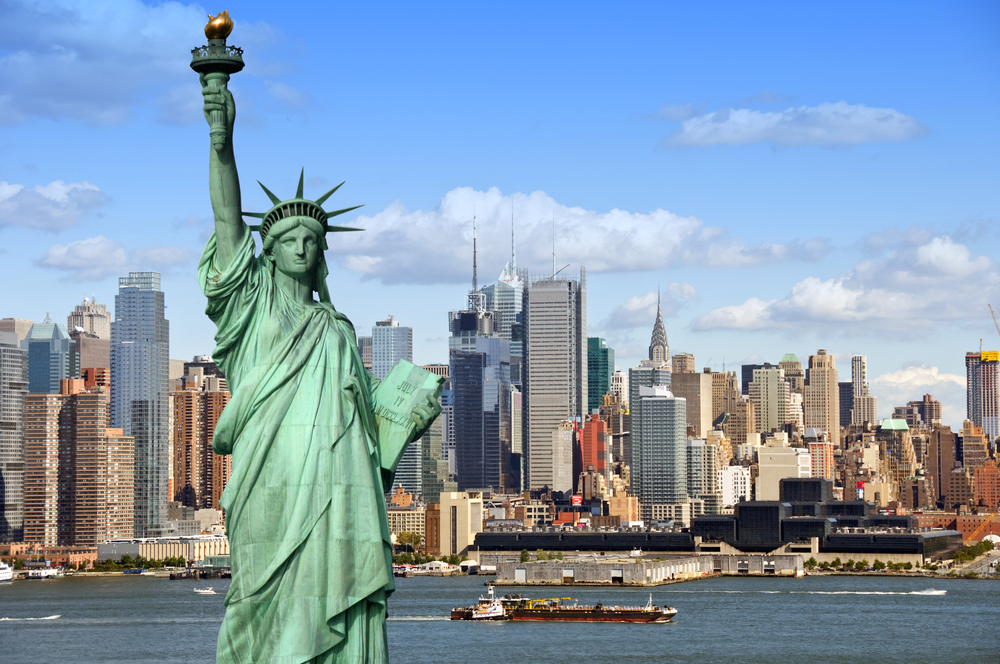Experienced Investor
What does Biden’s inauguration mean for the stock market?

Biden’s first 100 days in office will set the tone for the next four years. What will he focus on?
US president Joe Biden is expected to kick off his term in office examining corporate tax rates and climate change alongside a coronavirus recovery plan.
His term begins in the midst of a deep economic contraction and a global health pandemic, of which the US is one of the worst affected countries.
Economic rescue package
Biden has already announced he aims to provide 100m vaccinations in his first 100 days and has also proposed a further $1.9tn economic package to aid vaccine deployment, local government support, and a $1,400 cheque for individuals.
Susannah Streeter, senior investment and markets analyst at Hargreaves Lansdown, said: “Joe Biden’s plans for a mega rescue package, with stimulus checks of $1,400 for most Americans should help consumer focused stocks reliant on discretionary spending. There remains a risk though that with such an uncertain economic outlook, rather than splash the cash, recipients will hang onto it, limiting the overall boost to an economy which is so reliant on consumer spending.”
Corporate tax rates
Biden campaigned to increase corporate tax rates from 21% to 28%, and also to raise income taxes for those earning more than $400,000.
Randeep Somel, manager of the M&G Climate Solutions Fund, said: “While it is a large increase in corporate tax rates, they will still remain below the 35% rate they were under president Obama.
“Conservatives members of congress are already getting concerned of the ballooning US deficit which has now surpassed $27tn. An increase in these rates of tax will show the incoming team are concerned for the huge debt piles the US is amassing and they are targeting those areas such as US corporates and the wealthy who have been least impacted in 2020.”
Technology stock
Biden’s $1.9tn economic rescue package means the US stock market could have an interesting 2021. According to Interactive Investor, between 1 November 2021 and 18 January 2021, investors bought established technology sector names such as Tesla, Apple, and Amazon.
But there has also been a distinct appetite for younger and fast-growing stocks trading in the US, most notably companies involved in the roll-out of electric vehicles or charging infrastructure.
Shanghai-based car manufacturer Nio, which floated in 2018, tops Interactive Investor’s buy list since 1 November 2020 (to 18 January 2021). The stock has seen a 550% surge in its share price since July.
Lee Wild, head of equity strategy at Interactive Investor, said: “There was a time when more adventurous investors might add a few of the big American household names to their portfolios. Now, more UK investors than ever are demanding access to younger, fast-growing stocks traded in the US. Last year’s performance by the tech sector justified perfectly this shift, generating significant profits for those investors willing to spread their wings.”
However, the US tech sector is likely to face regulation. The US Department of Justice has filed charges against Google, accusing the company of anti-competitive practices to preserve its monopoly over internet searches. Facebook already faces legal action over allegations it stifled competition, which could see it forced to sell off WhatsApp and Instagram. The stance of Twitter and Facebook to ban Donald Trump from their platforms has also rattled investors.
Streeter said: “They fear this interventionist stance by companies, which have previously been more hands-off in terms of regulating content, could not only depress advertising revenues but also increase demands for greater regulation not just from Democrats but Republicans too.
“New legislation will take time to be enacted, but the winds of change are blowing in the direction of a much tougher stance towards tech, which is likely to put pressure on some valuations.”
However, companies like Zoom and Microsoft should still continue to reap the benefits of the homeworking revolution, alongside providers of cyber security products such as Zscaler, Crowdstrike Holdings and Cisco Systems.
Digital commerce
Timothy Parton, co-manager of JPMorgan American Investment Trust, says investors should look beyond the immediate political noise and focus on the individual merits of US companies primed for recovery.
He said: “Digital commerce continues to grow across the USA. The per cent of total online retail sales in the US has expanded from just 1% in 2000, to 11% in 2019, and has outpaced general retail sales by roughly 15% over the past five years.
“The pandemic has accelerated this further: Mastercard spending data shows us that since the outbreak of Covid-19, ecommerce represents around 22% of retail sales. Yet in the US market, the top 10 online retailers account for 60% of ecommerce.”
Big spending and low interest rates
Biden has nominated Janet Yellen, the former federal reserve chair to be US Treasury Secretary, taking over from Steve Mnuchin. Yellen will play a crucial role in both stimulating the economy in the short term but ensuring its long term prospects are not hindered.
Nigel Green, chief executive and founder of deVere Group, said: “In her testimony in congress on Tuesday, the former federal reserve chair called on lawmakers to ‘act big’ on coronavirus stimulus especially with interest rates being at historic lows.
“At the fed she continually made the case for full employment, meaning we know already, her track record proves it, that she is prepared to spend. With Ms Yellen in charge and with an economy that needs a shot in the arm, I think we can expect massive spending combined with continued ultra-low interest rates for years. This will act as a catalyst for stock markets.”